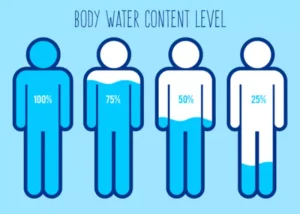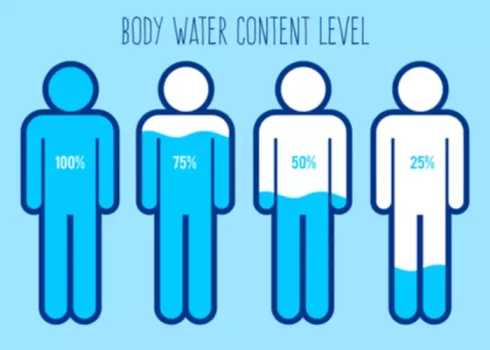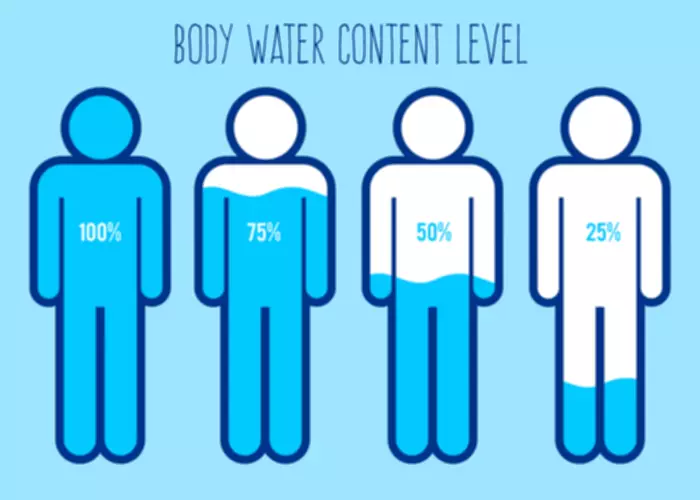
This process, also called tolerance development, presumably is a mechanism to reestablish normal cell function, or homeostasis, in response to continuous alcohol-induced alterations. The 5-HT2 receptor appears to undergo such adaptive changes (Pandey et al. 1995). Thus, the number of 5-HT2 receptor molecules and the chemical signals produced by the activation of this receptor increase in laboratory animals that receive alcohol for several weeks.
Feel like you should be drinking less? Start here
Eventually, you rely fully on alcohol to generate dopamine release, and without it, you experience withdrawal symptoms. As previously noted, long-term alcohol use may lead to a decrease in GABAA alcohol and dopamine receptor function. In the absence of alcohol, the reduced activity of inhibitory GABA neurotransmission might contribute to the anxiety and seizures of withdrawal. These symptoms are treated, at least in part, using medications that increase GABAA receptor function, such as diazepam (Valium) and other sedatives. Alcohol might also increase inhibitory neurotransmission by increasing the activity of inhibitory neuromodulators, such as adenosine.
- Gene expression of cholinergic interneuron markers and several nAChR subunits was not changed following chronic alcohol consumption and abstinence (D, E).
- Furthermore, the trend toward decreased dopamine release in the males with no abstinence might have become significant had those subjects been put through abstinence periods like the male subjects in Cohort 3 of this study.
- Drug addiction and alcoholism can be life-threatening and can have terrible impacts on the lives of both the person with the addiction and everyone else they are close to.
- Get the help you need from a therapist near you–a FREE service from Psychology Today.
Data analysis
- Moreover, although increased serotonin levels at the synapses in the brain can moderate alcohol consumption, additional factors contribute to continued alcohol abuse.
- With a cerebellum running at half-speed, it would be hard to walk a straight line or operate heavy machinery.
- Further, many of these adaptive changes set in motion as a result of chronic alcohol exposure and withdrawal experience occur within brain reward and stress systems.
- Twenty-four volunteers were screened and sixteen were enrolled based on inclusion/exclusion criteria.
- In contrast, female macaques had enhanced dopamine release in the caudate, but not putamen.
To date, the exact mechanisms underlying the changes in serotonin-metabolite levels are still unknown. Other lines of research related to alcohol withdrawal reinforce this model of alcohol-related changes in DA. It has been theorized that the pharmacologic mechanism of action for antipsychotic drugs is (at least some) antagonism of dopamine receptors in the brain 2,3,4. To activate hippocampal GABAergic neurons, serotonin binds to the 5-HT3 receptor. This receptor is present in many brain regions (Grant 1995) and may reside on GABAergic neurons.
NEUROCHEMICAL MECHANISMS OF ALCOHOL WITHDRAWAL
- Explore the intricate dance of mixed emotions, from joy to sorrow, and how our brains navigate the complexity.
- Sizing of this study was based on prior experience with PET imaging studies and did not take statistical powering assumptions into account.
- Becoming dependent on that rush of dopamine can be risky when it involves behaviors or substances that pose dangers to our physical and mental health.
- The prefrontal cortex also plays a role in preventing aggressive behavior, so this might help explain the relationship between alcohol and violence (see my last post).
We found that long-term alcohol consumption altered dorsal striatal dopamine release and uptake in a sex- and subregion-dependent manner. We further found that regulation of dopamine release by D2/3 dopamine autoreceptors was altered by long-term alcohol consumption in male, but not female, rhesus macaques regardless of abstinence status. These results are largely in agreement with the literature, though some disparities exist. For example, long-term alcohol self-administration resulted in decreased dopamine uptake rates in the dorsolateral caudate of male cynomolgus macaques 22, 24. This group also found no difference in the quinpirole-mediated inhibition of dopamine release between alcohol and control male cynomolgus macaques 24. It is likely that species, striatal subregion, and intake duration (6 months in the previous study versus 1 year in the present study) differences may account for many of the dissimilarities between studies.
The most basic level of complexity is the arrangement of connections (i.e., synapses) between individual neurons. One neuron may connect with up to hundreds or thousands of adjacent neurons (Shepherd 1994). However, subtypes of the same receptor may respond differently from one another depending on the neuron or on the part of the brain in which the receptor is located.

Determining the mechanisms by which these factors modulate the receptor’s sensitivity to alcohol is a major focus of research. Reinforcement is a key phenomenon in the development of addiction to alcohol and other drugs. Positive reinforcement is the process by which an action that results in pleasure, or reward, becomes repetitive. Many people find the mental effects of alcohol consumption (e.g., euphoria) rewarding; this effect may lead to positive reinforcement and persistent alcohol-seeking behavior. The brain’s adaptive changes to the continued presence of alcohol result in feelings of discomfort and craving when alcohol consumption is abruptly reduced or discontinued.


By breeding rats with similar alcohol-consumption patterns (e.g., high consumption or low consumption) https://ecosoberhouse.com/ with each other for several generations, researchers created two strains with distinctly different preferences for alcohol. By Ariane Resnick, CNCAriane Resnick, CNC is a mental health writer, certified nutritionist, and wellness author who advocates for accessibility and inclusivity. If you’ve tried to mitigate your behavior and you haven’t been successful, there are many people who can help you. Assess how you’re feeling, what you’re thinking, and any concerns you may have about your behavior.
